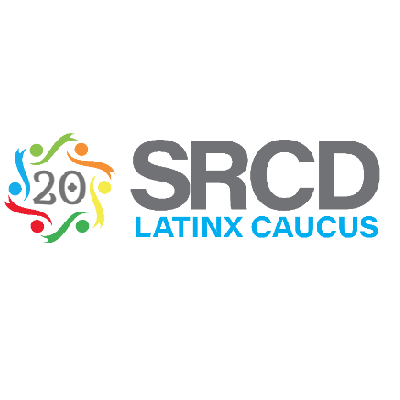May 2025 Spotlight - Alysia Cruz


Name: Alysia Cruz, Ph.D. Student
Institutional Affiliation: University of California, Irvine
1) Can you write a couple sentences on some aspect of your career development: feel free to pick one or any other related question among these: a) what drew you to do work on Latinx youth and families, or another topic that is important to you now? b) who was an important mentor to you in this work, or was there a particularly influential study in the field or in a related field? c) any particular advice or tips to someone starting out in the field who is doing work in your area?
My research on Latine youth and families is deeply rooted in both personal experience and a longstanding commitment to amplifying the strengths, resilience, and cultural richness of our communities. As a Dominican and Puerto Rican, I carry the values, traditions, and stories that have shaped my upbringing—ones that center family and a strong sense of community. Growing up, I witnessed how vital familial support, cultural pride, and everyday acts of cultural socialization were in shaping my own identity and that of those around me. These experiences are not just memories; they are the foundation of my academic inquiry. This personal lens inspired me to explore how cultural values—like bien educado—are transmitted across generations and how they foster positive development, particularly among Latine youth navigating their own cultural contexts. I am especially interested in the everyday practices that parents, caregivers, and communities use to instill a sense of responsibility, empathy, and cultural pride in Latine youth. My goal is to produce research that both contributes to scholarly knowledge and uplifts the lived realities of Latine families. By centering culturally grounded strengths, I aim to inform policies and practices that are responsive to the diverse experiences within our communities and that promote equity, dignity, and well-being for Latine youth and their families.
Throughout my career, I’ve been fortunate to have mentors who have shaped my approach to studying Latine youth and families. One particularly influential mentor has been Dr. Gustavo Carlo, whose work on prosocial development in culturally diverse populations has greatly informed my own research. His mentorship has emphasized the importance of understanding cultural strengths and contextual factors that shape positive development in Latine communities.
I would encourage those who are starting out in the field to stay deeply connected to the communities they study—whether through community-engaged research, mentorship, or simply listening to the voices of those they seek to understand. It’s important to approach this work with both rigor and humility, ensuring that research is not only methodologically sound, but also meaningful and impactful for the people it represents.
2) A short paragraph describing a particular recent finding, current study, or recent publication and what makes you excited about it. Feel free to describe its importance from any one or more of these lenses: a) research contribution; b) our knowledge about Latino youth and families; c) our knowledge about child development generally; d) practice or policy relevance.
In a recent study, I examined whether self-efficacy and social skills help explain the link between prosocial behaviors and academic performance among low-income, U.S. Latine early adolescents. Drawing on longitudinal data from over 500 middle school students, we found that prosocial behaviors were significantly and positively linked to later self-efficacy, which in turn, was subsequently positively linked to academic performance. This finding is exciting because it highlights self-efficacy as a key developmental mechanism that helps explain how behaviors—like helping and cooperating—can support academic success. It contributes to the broader literature by centering Latine youth in developmental science and emphasizing the strengths they bring to educational settings. From a practice standpoint, it suggests that fostering prosociality alongside self-efficacy could be a powerful, culturally relevant approach to promoting positive academic outcomes among Latine adolescents.
Cruz, A. M., Carlo, G., Gulseven, Z., & Vandell, D. L. (2025). A longitudinal study of prosocial behaviors predicting later academic performance in US Latine early adolescents. Journal of Adolescence, 97(1), 113-123.
https://onlinelibrary.wiley.com/doi/full/10.1002/jad.12401
3) Why is the caucus important and/or your views on the role of the Latinx Caucus vis-à- vis SRCD, research on child development, policy/practice.
The Latinx Caucus plays a crucial role in ensuring that research on child development reflects the lived experiences of Latinx youth and families. It fosters a supportive academic community, promotes culturally relevant research, and provides opportunities for mentorship and collaboration. As part of SRCD, the Caucus helps elevate Latinx scholarship and advocates for research that informs policies and practices benefiting Latinx children and families.
4) Any upcoming talks, presentations, or publications we should know about?
Upcoming Talks:
Cruz, A., Carlo, G., Crockett, L. (2025, May). Links Among Parents’ U.S. Mainstream Values, Parenting Practices, Culture-Related Mechanisms, and Prosociality in Latine Youth. Symposium to be conducted at the 2025 Biennial Meeting of the Society for Research on Child Development, Minneapolis, Minnesota.
Upcoming Poster Presentations:
Cruz, A., Carlo, G. (2025, July). Latina Mothers Discuss Respect, Empathy, and Consideration as Aspects of Bien Educado. Poster to be presented at the Interamerican Congress of Psychology (CIP2025), San Juan, Puerto Rico.
Upcoming Publication:
Cruz, A. M., Carlo, G., Carrizales, A., & Carlos Chavez, F. L. (in press). Developmental theory and measurement approaches to mindfulness and compassion. In K. A. Schonert-Reichl & R. W. Roeser (Eds.), The handbook of mindfulness, compassion, and education: Research, policy, and practice from around the world (1st ed.). Springer.
5) A preferred contact email:
6) a weblink you prefer
Google Scholar: https://scholar.google.com/citations?user=TdTFxdgAAAAJ&hl=en&authuser=1
ResearchGate: https://www.researchgate.net/profile/Alysia-Cruz?ev=hdr_xprf